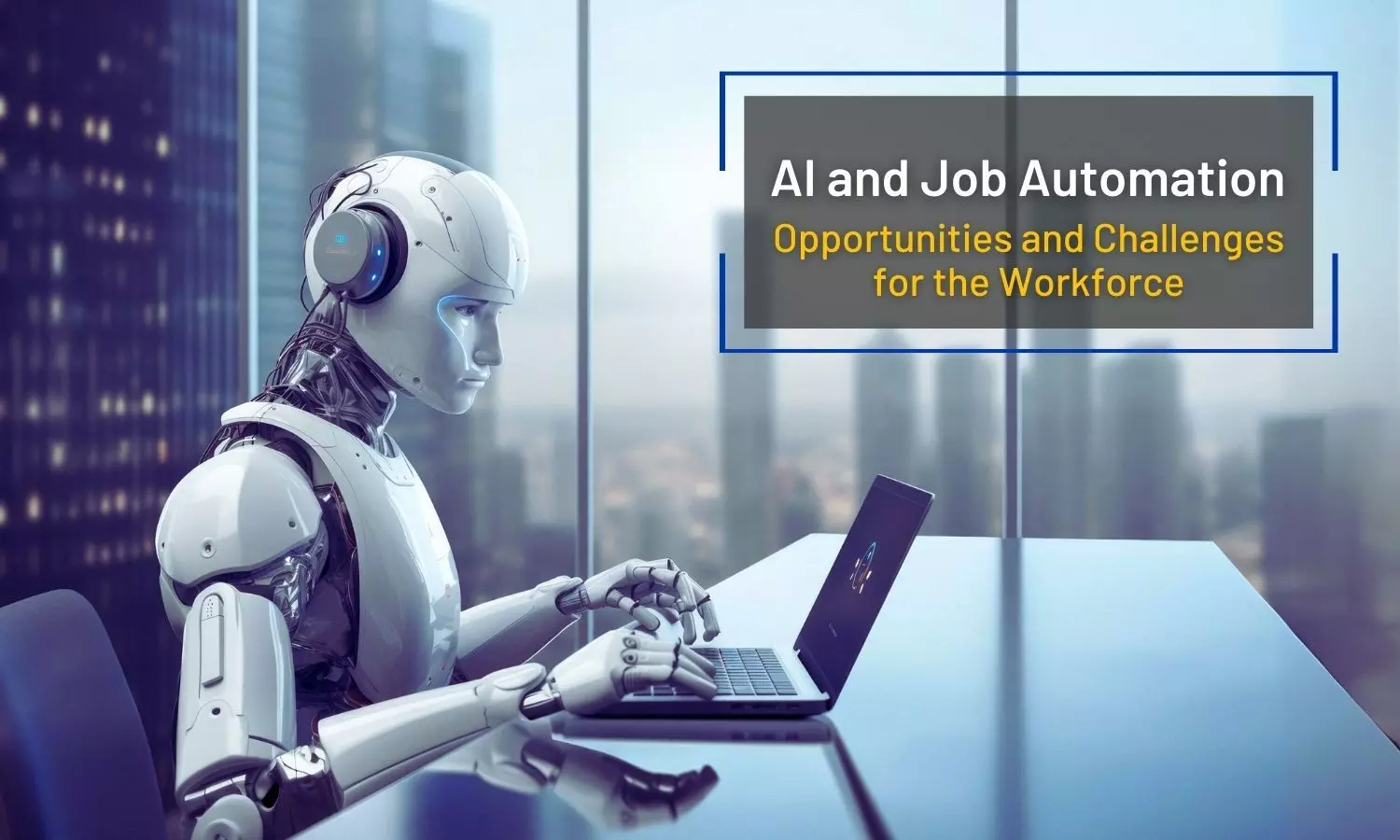Impact of AI on jobs: Opportunities and Challenges to look out for

Learn about the impact of AI on jobs and how it is transforming the workforce. Explore both the opportunities and challenges that lie ahead.
“Artificial Intelligence or AI” is changing everything that we do.
Have you wondered how AI will change the way we work? It has already started making an impression in various industries. But what does the future hold?
In this article let us have a look at the impact of AI on jobs, its potential opportunities and also the challenges that the workforce faces with the evolution of AI.
How will AI shape the future of work?
Do you want more time for doing creative and meaningful work rather than repetitive boring work? Then AI is your answer that can help you from doing repetitive tasks. For example, AI can help data analysts to go through a large amount of data or information or it can assist doctors in diagnosing illnesses faster. Doesn’t that sound great?
But it has a flip side too. Jobs involving routine tasks like data entry or customer support could also be automated challenging the job market. Workers in these fields need to upskill or transition to some other roles. While some fear job losses, others see it as an opportunity for collaboration. Could humans and AI work together to create better results?
One thing’s for sure, AI is reshaping the job market. It’s up to us to adapt, stay curious, and be ready for new possibilities.
Opportunities Created by AI
1. New Job Roles –
With the growth of AI, there is also the growth of new job roles. People are required for jobs focused on designing, maintaining and improving AI systems. Some emerging roles include:
- AI specialists: Professionals who create, train, and improve AI models.
- Data scientists: Experts who collect, analyze, and interpret large data sets to help AI systems function effectively.
- Robotics engineers: Engineers who design and build AI-powered robots for industries such as manufacturing, logistics, and healthcare.
Though automation may replace some jobs, the development and maintenance of AI systems will require highly skilled workers, offering opportunities for those ready to upskill.
2. Enhancing Efficiency and Productivity –
AI-driven automation can increase efficiency, allowing businesses to operate more effectively and on a larger scale. By automating routine tasks, employees can focus on more creative and strategic work. For example:
- In finance, AI can handle complex data analysis, allowing analysts to spend more time on strategic planning and client relationships.
- In healthcare, AI diagnosis tools help doctors analyze medical images, making diagnosis faster and more accurate.
3. Personalization and Customer Experience –
With the large amount of data available and by analysing it, AI can predict consumer preferences, and offer services based on their preference and behaviour.
4. Upskilling Opportunities –
AI is not just about job loss but also about job evolution. Companies are investing in training programs to help employees upskill in AI-related areas, whether it’s learning how to work with AI tools or transitioning into AI-driven roles.
Challenges created by AI in Jobs
Though there are various opportunities, the challenges created by AI cannot be ignored. Here are some challenges faced by the workforce.
1. Job Displacement –
- Automation of Tasks: Many repetitive and mundane tasks are being automated, which can lead to job losses. For instance, roles in manufacturing and data entry are increasingly being taken over by machines.
- Changing Job Requirements: As AI takes over certain tasks, the skill sets required for many jobs are shifting. Workers may need to adapt to new technologies, which can be overwhelming.
2. Learning new Skills –
- Need for New Skills: With the rise of AI, there is a growing demand for skills related to data analysis, programming, and AI management. Workers may find themselves lacking the necessary skills to keep up.
- Continuous Learning: Employees will need to engage in lifelong learning to stay relevant. People might find it difficult to give extra time for learning with their everyday tedious jobs. This can be a challenge for those who are not accustomed to ongoing education or training.
3. Ethics and AI Bias –
AI systems can do things that we train them to do. Anything outside that creates a problem. If that data has biases, the AI can make unfair decisions that keep inequality going. This leads to unfair practices especially in hiring processes. This raises ethical questions about fairness in the workplace.
4. Decreased Human Interaction –
As AI systems take over more tasks, employees might experience reduced social interaction at work, which can lead to feelings of isolation and job dissatisfaction. Also, AI is great in data-driven tasks but struggles with creativity and emotional intelligence. Jobs that require these human traits may become undervalued.
There is no doubt that AI is transforming the workforce with opportunities and challenges. Whatever it may cause, it is important for us to stay up to date, flexible and keep learning because the future of work is not just about the evolution of AI but also how we evolve with it.




















